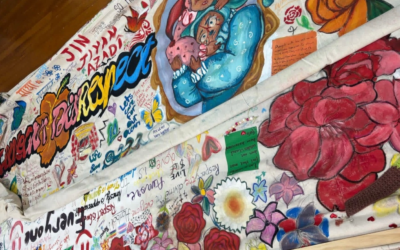Many of us would be familiar with the adage ‘boys will be boys’, but in light of recent global movements – such sentiments only highlight the absurdity of this way of thinking. Let’s start with what’s happening in our own backyards.
The role of what a man is and how that is defined is often a rigid structure beginning from the time they are young. They are told not to cry should it risk them being seen as ‘soft’, they are given toys conforming to gender stereotypes and their heroes are often depictions of strong, superhero men.
In Australia, the way the role of a man is defined, and the expectation of how they should act can create a toxic culture around masculinity. Men are often stereotyped as only being interested in sport, enjoying a beer, being tough and generally dominant. But what happens to men that don’t conform to this standard?
While this is an issue that spreads around societies and cultures globally, this mentality often starts with our upbringing and within our households. In a Sydney Morning Herald article, Clementine Ford notes that there are important links between the conditioning of gender in young children and the consequences as they then grow older.

Artwork by Dinusha Soo
Reg Mombassa, a designer for one of Australia’s most iconic brands of the nineties, Mambo, often refers to the toxicity of Australian masculinity in his work. He uses his design work as a platform to showcase this – challenging the standards we often confine our men to.
Several of his artworks feature Australian animals holding iconic items such as a football, beer cans or stoking a BBQ – all generally associated with the stereotype of being an Australian man. He notes in a Sydney Morning Herald interview that he “realised he was a low-status male”, creating self-portraits to present ways in which not all men fit into this pre-defined image.
“When you make art and read books, you realise that you’re on the outside of society. I started to resent being bullied by more powerful males. That’s how society has been structured. I think a lot of men are questioning it and realising that it’s not such a good thing,” Reg says to Sydney Morning Herald.
As a student body, it’s pivotal to reflect on the role of Australian masculinity – whether we are benefiting from it or perpetuating it. We must consider how we could change the stereotype around men in Australia to be all encompassing and this starts with teaching the youth, our sons, little brothers, nephews and our communities.



